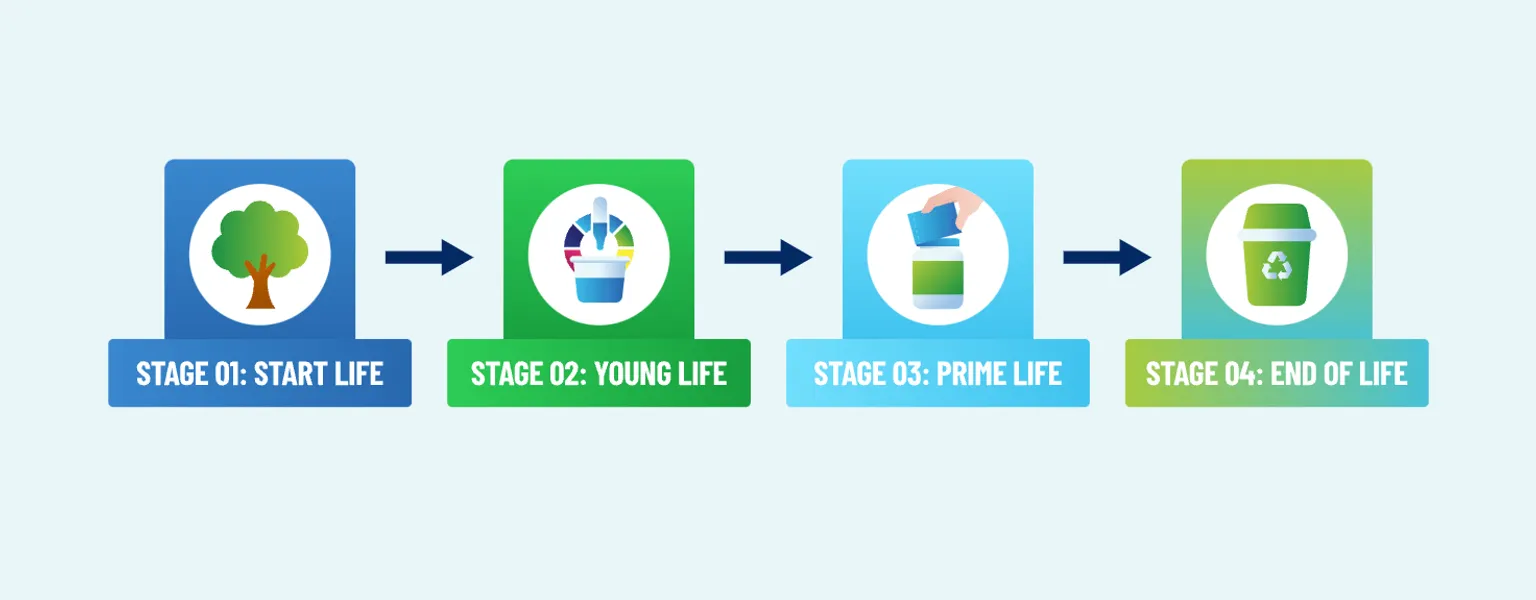Viscose Closures: the lifecycle of a Viskring

Supplier News
The lifecycle of your biodegradable self-shrinking Viskrings can be categorised into 4 key life stages, continue reading to find out about the remarkable circle of life of your bands…
Stage 1: start of life
- The bands are born from Sycamore trees. Sycamore trees have a high cellulose content, so they are the perfect choice to produce the material needed to make your great biodegradable bands!
- The wood from the Sycamore trees is ground down into cellulose sheets.
- These cellulose sheets get broken down into a chemical called Viscose. This Viscose material is delivered to Viscose Closures HQ from our supplier ready to be turned into tamper evident self-shrinking cut bands.
Stage 2: young life
- Pigment is added to the Viscose to colour the material to your required colour. We offer colours such as white, black, red, blue and yellow to name a few.
- This coloured material is then extruded into tube form and placed into acid to make regenerated cellulose.
- Regenerated cellulose is pure cellulose with shorter chains. Having a shorter chain length means the material’s physical property behaves more like plastic (without actually being plastic) and so can be shaped easier into different forms such as sheets and fibres.
- This regenerated material is then passed through a thorough wash process to ensure the material is clean.
- Your clean material is then wound onto reels.
- If you choose to take plain bands the material is cut into bands and perforated to your own requirements and specifications.
- If you choose to take printed bands the material is printed on, then cut bands and perforated to your own requirements and specifications.
- Your cut bands are then sealed in bags containing a solution that preserves the natural material of the bands. This solution is a non-toxic and not harmful. The bag containing your bands and solution is packed into tins and sealed shut, ensuring they are free from contamination.
- Your orders are then delivered to you, our valued customers.
Stage 3: prime of life
- Your bands are delivered to you in tins which can be opened using a standard tin opener.
- Simply remove the bands you need and hand apply to your container.
- The bands self-shrink within an hour at room temperature, simply leave them to dry on your container where they will form a tight seal.
- Re-seal any unused bands in their original solution following our storage guidelines and they can be used up to 12 months from the date of manufacture.
- Once the bands are dry your product is tamper evident, and you’re ready to go!
Stage 4: end of life
- Once your consumer removes the bands we recommend they place in their food waste bin, or home compost pile.
- Our tests show that Viskrings biodegrade in soil within 4 months, returning to the earth from which they came, giving them the ability to repeat the process again and again.
This article was originally published by Viscose Closures.
Related News
-
Supplier News
Viscose wins Manufacturing Business of the Year at The Swansea Bay Business Awards 2026
-
Supplier News
Viscose Closures forms new distribution partnership in Australia
-
Supplier News
Viscose Closures: From factory floor to festive store – the journey of a safe product
-
Supplier News
Viscose launches new tethered plastic screwcaps
-
Supplier News
Viscose Closures: Choosing the right cork – A guide for wine and spirits producers





